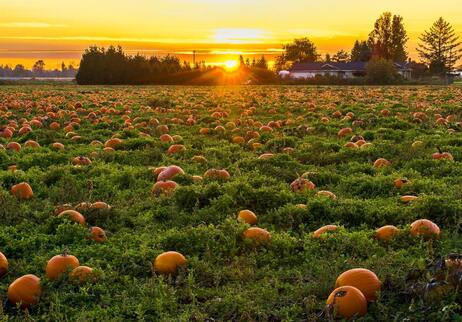|
From a botanist's perspective, a pumpkin is known as a fruit — it's a product of the seed-bearing structure of flowering plants. On the other hand, vegetables are the edible portion of plants that include leaves, stems, roots, bulbs, flowers, and tubers. Did you know that Fall pumpkins can do so much for us? After eating a heavy meal (or a big Thanksgiving dinner), there is an antidote for the onset of sleepiness. Just a handful of pumpkin seeds can provide some much needed energy, as the potent level of tryptophan in pumpkin seeds facilitates a boost in the production of serotonin. Pumpkins can also decrease and ease levels of anxiety and stress — overall mood changes become possible and easy. Did you know one cup of pumpkin seeds has 544 mg of magnesium? Our bodies need magnesium each day, and during exercise, it’s even more important. Pumpkins can ward off viruses and infections. Vitamin C is found in pumpkins, and can minimize colds and encourage quicker recovery. Harvard Health Publications states that pumpkins can even help with fertility. Over 17,000 women have been assisted by fertility foods that also include spinach, beets, and tomatoes. Have you heard of “bad cholesterol” or LDL? Pumpkin seeds can also reduce elevated levels in the body. What a wonderful and inexpensive treat for us as we near the holidays!
0 Comments
|
Christine Cantilena BarnesA licensed clinical mental health counselor, Christine has been a part of Atlanta’s professional community for over 25 years.
|


 RSS Feed
RSS Feed